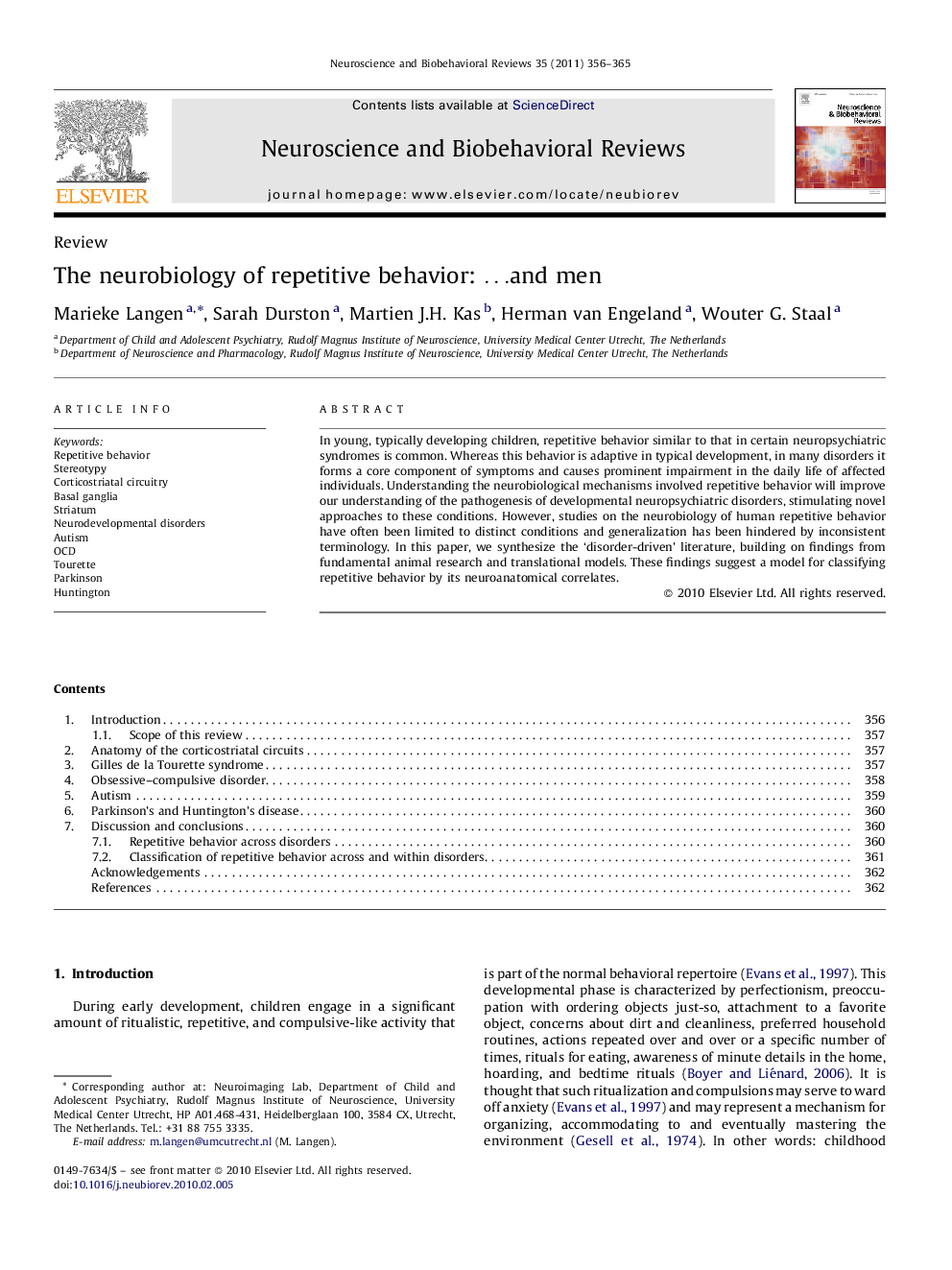| Article ID | Journal | Published Year | Pages | File Type |
|---|---|---|---|---|
| 10461586 | Neuroscience & Biobehavioral Reviews | 2011 | 10 Pages |
Abstract
In young, typically developing children, repetitive behavior similar to that in certain neuropsychiatric syndromes is common. Whereas this behavior is adaptive in typical development, in many disorders it forms a core component of symptoms and causes prominent impairment in the daily life of affected individuals. Understanding the neurobiological mechanisms involved repetitive behavior will improve our understanding of the pathogenesis of developmental neuropsychiatric disorders, stimulating novel approaches to these conditions. However, studies on the neurobiology of human repetitive behavior have often been limited to distinct conditions and generalization has been hindered by inconsistent terminology. In this paper, we synthesize the 'disorder-driven' literature, building on findings from fundamental animal research and translational models. These findings suggest a model for classifying repetitive behavior by its neuroanatomical correlates.
Keywords
Related Topics
Life Sciences
Neuroscience
Behavioral Neuroscience
Authors
Marieke Langen, Sarah Durston, Martien J.H. Kas, Herman van Engeland, Wouter G. Staal,
